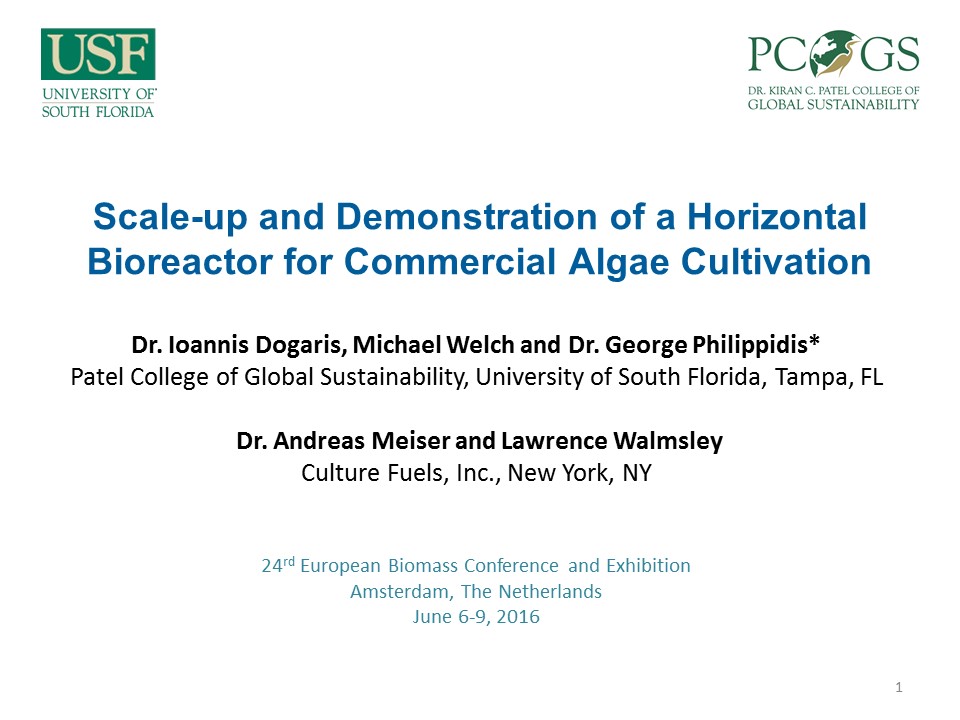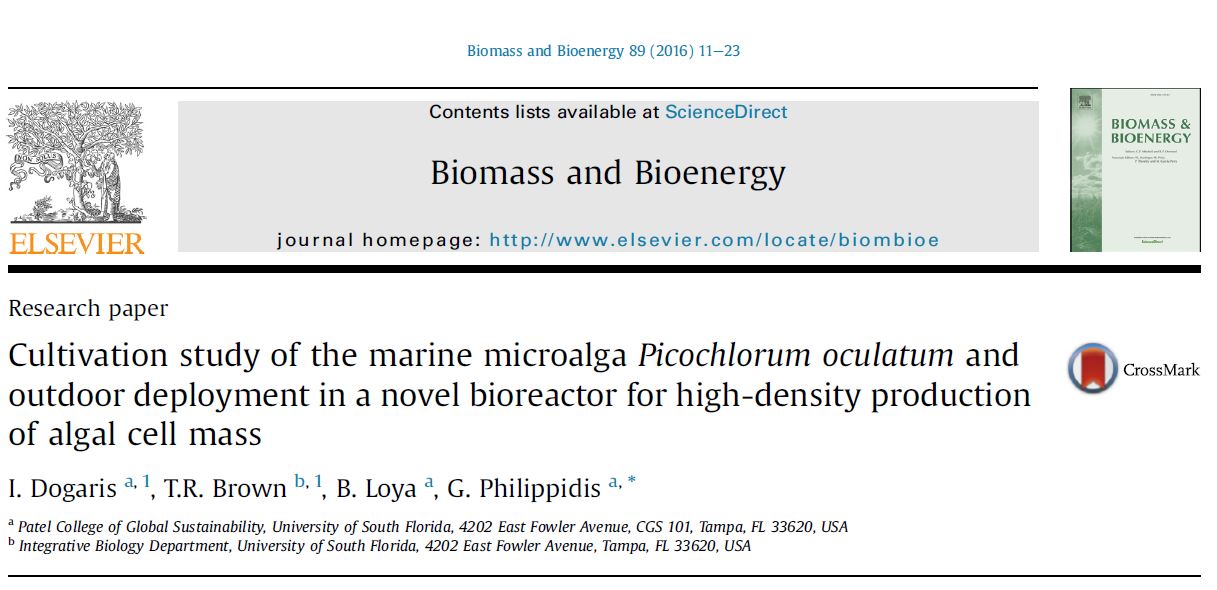Dr. George Philippidis, Associate Professor at USF and leader of the Biofuels and Bioproducts Lab team, presented our research on the “Scale-up and Demonstration of a Horizontal Bioreactor for Commercial Algae Cultivation” at the 24th European Biomass Conference and Exhibition (EUBCE), in Amsterdam, The Netherlands, 6-9 June 2016.
“Scale-up of the horizontal bioreactor was successfully performed with the development and operation of a 40-m2 modular unit under real-world conditions in Florida, USA. Using marine algae, the novel bioreactor ran contamination-free over extended periods of time without hydraulic, mechanical or other problems. High algae concentrations and productivities were routinely achieved making the patented technology ready for commercial deployment for a wide range of applications with a variety of algae strains.”

